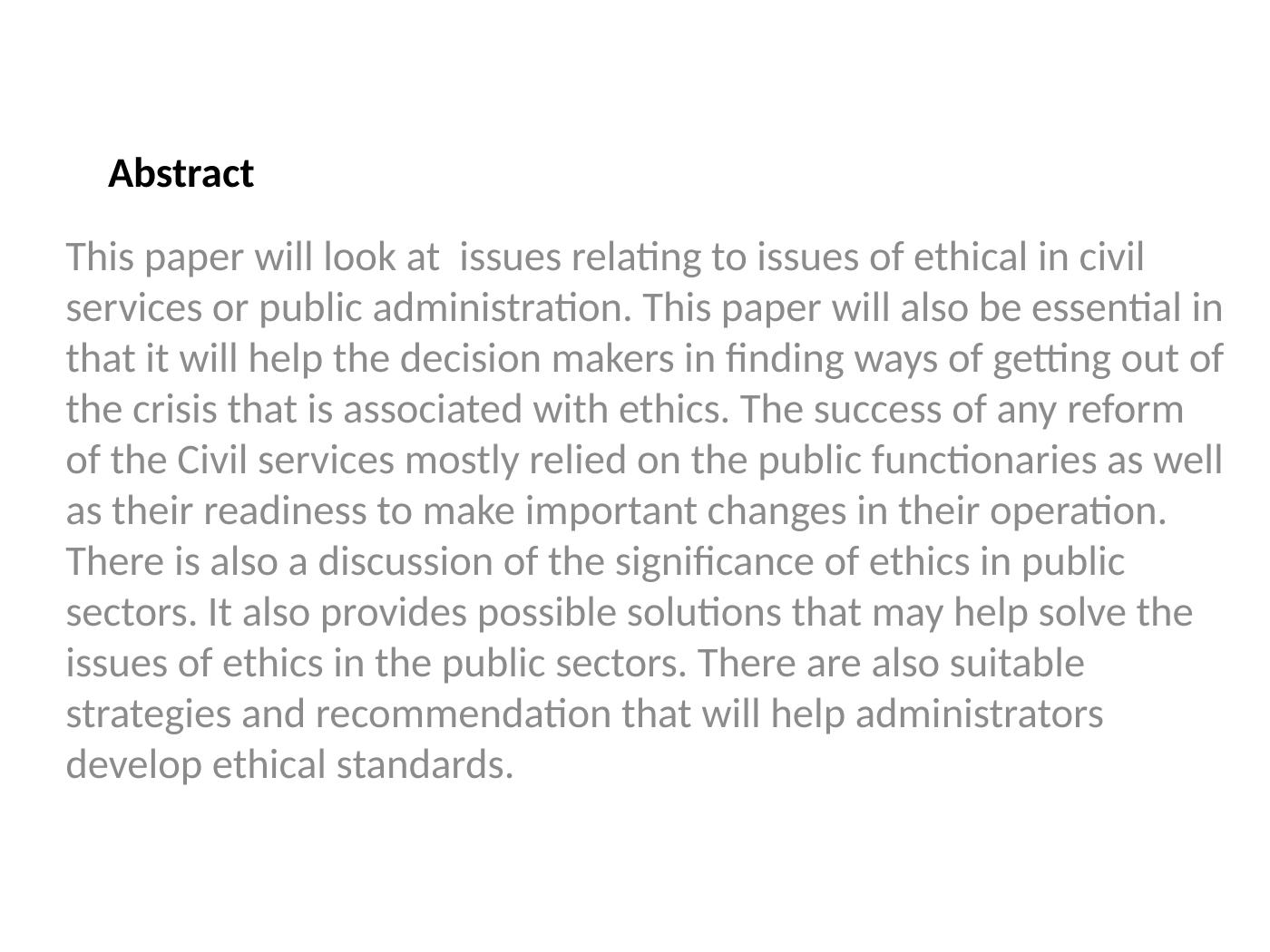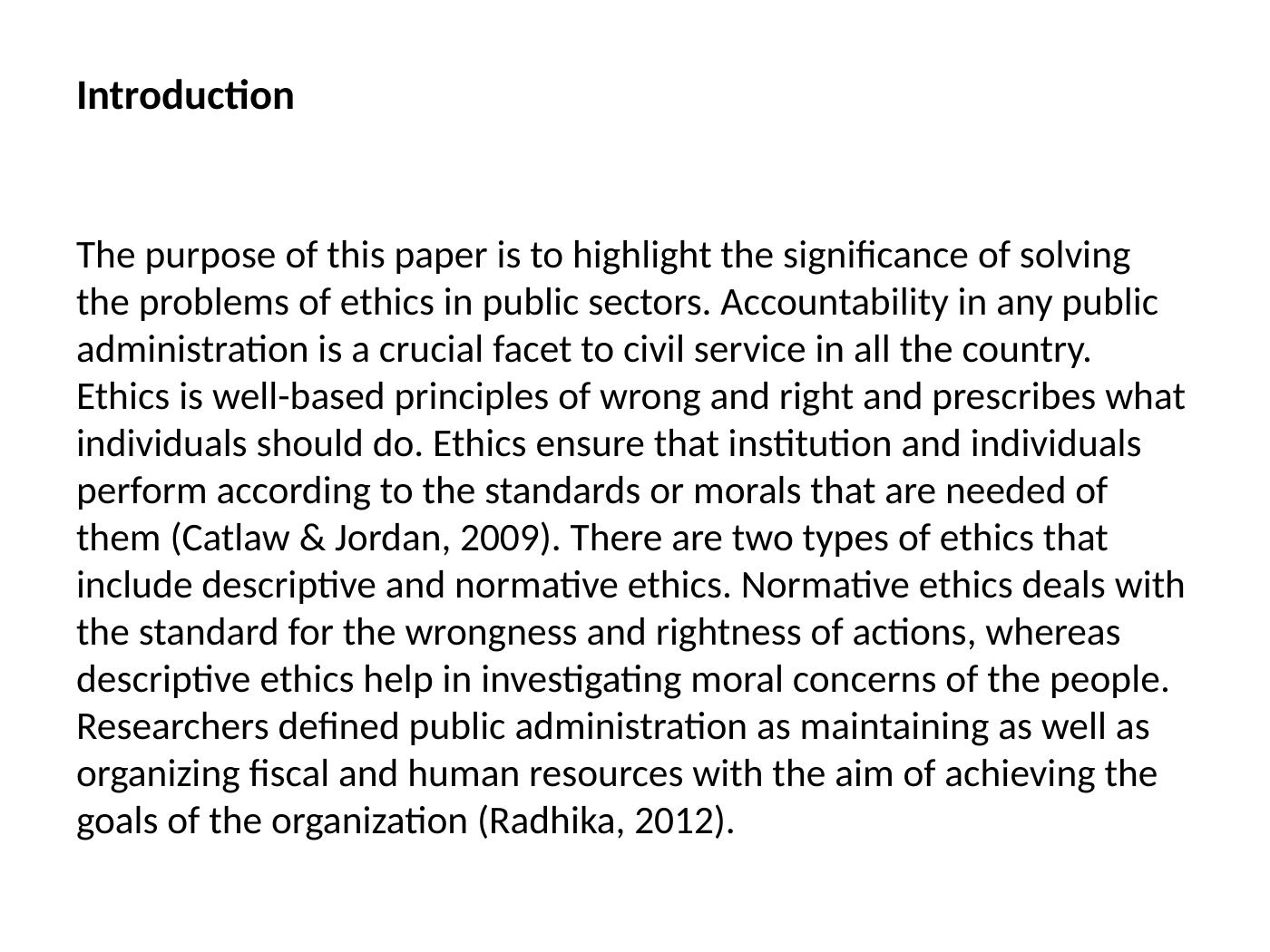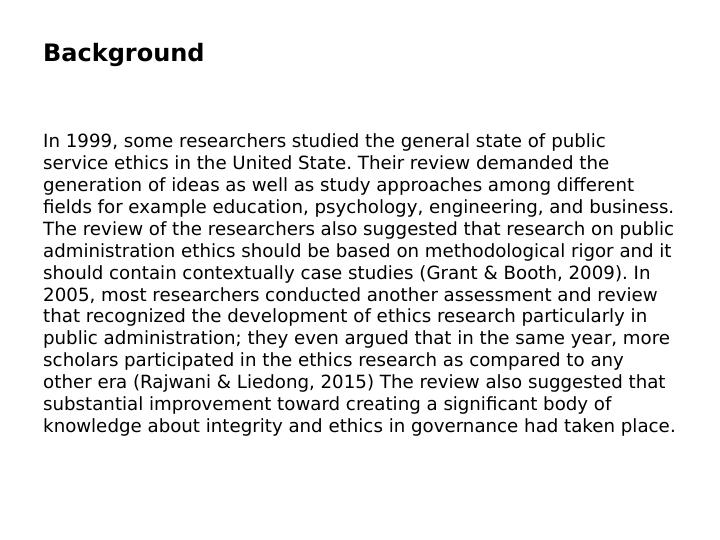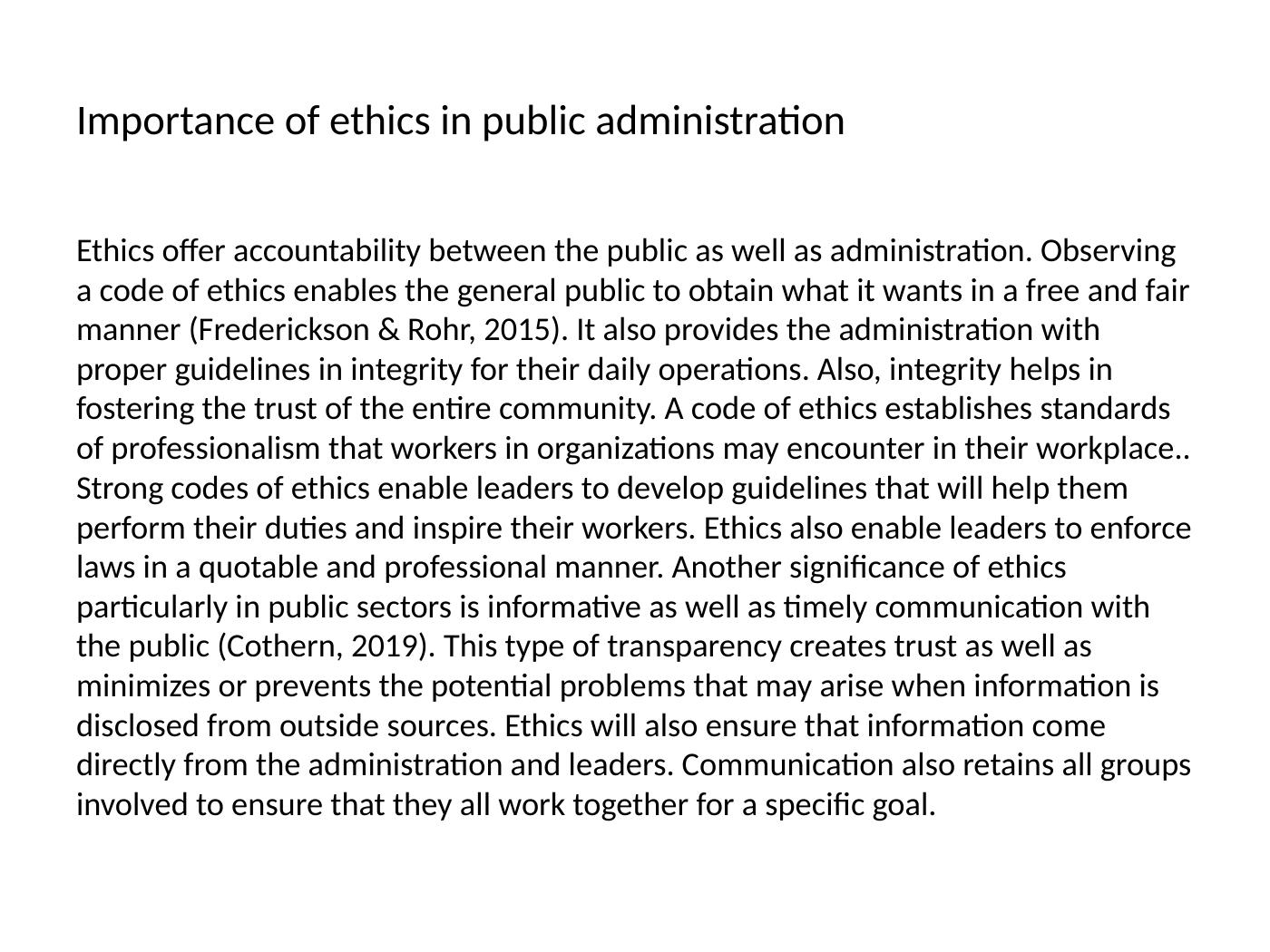Ethics in Public Administration: Significance, Issues, and Solutions
12 Pages2099 Words392 Views
Added on 2022-12-05
About This Document
This presentation discusses the significance of ethics in public administration, explores the issues related to ethics in the public sector, and provides possible solutions to address these issues. It highlights the importance of accountability, credibility, efficiency, and quality decision-making in public administration. The presentation also recommends strategies such as developing ethical standards, conducting ethics audits, and providing training and education on ethics.
Ethics in Public Administration: Significance, Issues, and Solutions
Added on 2022-12-05
ShareRelated Documents
End of preview
Want to access all the pages? Upload your documents or become a member.
Accounting Research Assignment 2022
|16
|4729
|18
Importance of Business Ethics and Ethical Governance
|28
|5288
|194
ICT Ethics Analysis
|10
|2320
|258
Importance of Business Ethics in Personal and Managerial Effectiveness
|19
|4951
|68
IT Ethics Assignment Essay
|10
|2217
|91
Public Administration: A Multidisciplinary Field and Key Aspects
|13
|878
|150




